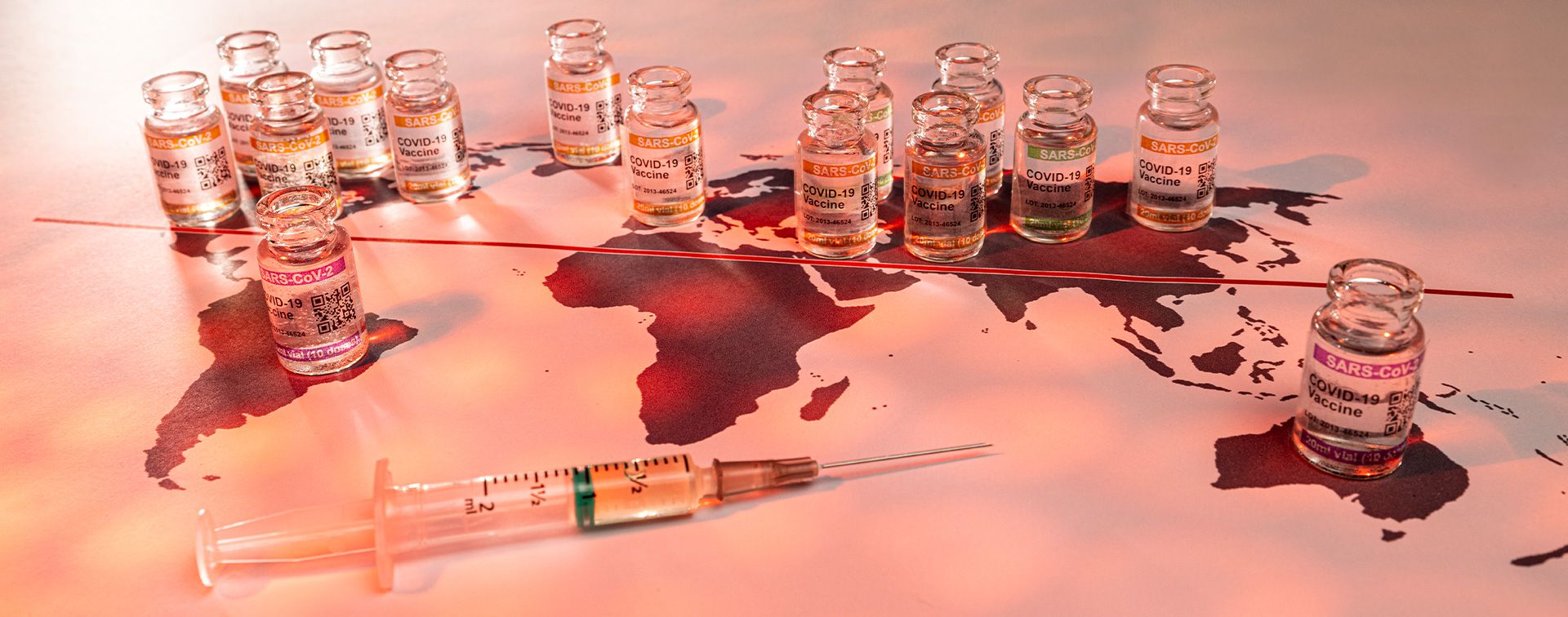
Justice Malala is an award-winning journalist, newspaper columnist, author, and entrepreneur.
The vast gap in mobility between citizens of most African countries and the rest of the world is set to widen in the short term unless there is a revolution in the pace of Covid-19 vaccine access on the continent. Possible new iterations of the pandemic, combined with onerous restrictions on African travelers by the global North and festering regional and national conflicts will add to these divisions and frustrations.
Despite Africa’s dismal circumstances, there are traces of silver linings and opportunities. A few countries will shine owing to public and private sector innovation. An example is the partnership signed in March by Ethiopian Airlines and the Africa Centers for Disease Control and Prevention for the implementation of the African Union (AU) Trusted Travel Pass to make continental travel easier and safer. Another is the decision by Kenya’s investment authority, KenVest, to speed up the rollout of a citizenship-by-investment program similar to those in Egypt and Mauritius.

Armed conflicts have restricted African mobility and degraded many countries’ passport power for decades. New and ongoing hostilities in countries such as Cameroon, Ethiopia, Mozambique, and parts of Nigeria have been exacerbated by the pandemic. Sadly, with the AU incapacitated by the pandemic and a leaderless Pan-African Parliament, any chance of resolution of these and any new conflicts that may arise remains distant.
As countries such as the USA forge ahead with vaccination campaigns and predict fully reopened economies in the third quarter of 2021, African countries across the board face immense challenges in accessing and rolling out vaccines. Africa has the slowest vaccination rate of any continent. By 1 July, 72 out of every 100 North Americans had received at least one vaccine dose while a mere 3.7 out of every 100 Africans had received one.
The implications for economies — and mobility — are significant. South Africa’s central bank has, for example, warned that the country’s promising post-pandemic economic growth outlook remains highly dependent on the pace of the vaccination rollout and a possible resurgence of the virus. It suggested that the pandemic could last into 2022 given that South Africa has purchased 30 million doses of Pfizer-BioNTech and 31 million doses of Johnson & Johnson vaccines to inoculate its 60 million population by February.
As a UN Development Programme report released in March put it, “there is no single Africa Covid-19 story…Only 10 countries account for over 80% of all (Covid-19) cases, island nations suffer peculiar impacts, rural-urban differentiation is evident, socioeconomic implications reveal gender biases, and trade patterns matter”.
That means that some innovations, such as Ethiopian Airlines’ first step towards a vaccine passport of sorts, can be a boon for some and a curse for others. A vaccine passport as envisaged in the global North has the potential to create huge inequities and exacerbate current ones. For example, in March the UK added Kenya to the list of 39 countries it had barred from entry for Covid-19-related reasons. Kenyan officials said this was “vaccine apartheid” as the UK’s red list consists mainly of Latin American and African countries, many of which have over time done better at controlling the spread of the virus than the UK. In retaliation, Kenya slapped a two-week quarantine on all passengers traveling from or transiting through the UK.
If a vaccine passport regime is rolled out across the globe, questions around the fairness of vaccine rollouts — which have overwhelmingly favored the global North — will intensify. Dr. Joia Mukherjee, Chief Medical Officer of social justice non-profit organization Partner in Health, has warned against the vaccine passport: “There really shouldn’t be anything until we can ensure equitable access for the vaccine…Otherwise we are creating another superstructure or colonial hierarchy of people from wealthier countries having access and poorer countries not having access.”
The pandemic’s momentum will continue to underline this global divide.
References
“Ethiopian Airlines Joins Africa CDC in Launching COVID-19 Test, Vaccine Passport.” Xinhuanet. Xinhuanet, March 17, 2021
Green, A. “How 'Vaccine Passports' Could Exacerbate Global Inequities.” Devex. Devex, April 19, 2021.
“Long-Term Socio-Economic Impacts of COVID-19 in African Contexts.” UNDP Regional Bureau for Africa. United Nations Development Programme, 2021.
Nesheim, C. “Kenya “Pushing Ahead” with Citizenship by Investment Program, Says KenInvest Director.” IMIdaily. Investment Migration Insider, April 6, 2021.
World Health Organization African Region. Twitter Post. June 17, 2021.
Ritchie, H, Ortiz-Ospina, E, Beltekian, D, Mathieu, E, Hasell, J, Macdonald, B, Giattino, C, Appel, C, Rodés-Guirao L, and Roser, M. "Coronavirus Pandemic (COVID-19)". OurWorldInData.org, 2020.'